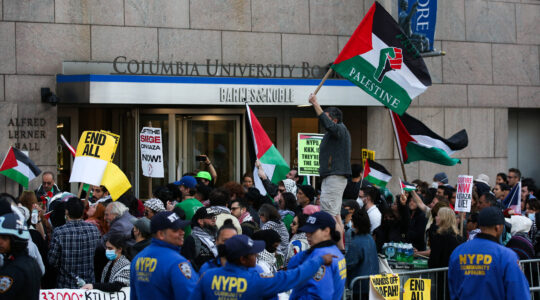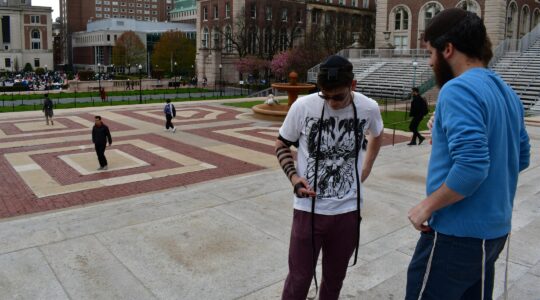NEW YORK (JTA) – It was perhaps of little surprise that “A Mighty Heart” had a modest opening.The film about the search for slain Wall Street Journal reporter Daniel Pearl, which opened Friday, has few of the markers of a Hollywood blockbuster.It is a distinctly low-budget affair, shot in a documentary style on location in India and released by Paramount Vantage, the art-house label of the major Hollywood studio.And though it stars beautiful Hollywood A-lister and tabloid princess Angelina Jolie as Pearl’s widow, Mariane, her performance is restrained and understated.So while other 9/11-related films have done comparatively well – “United 93” and “World Trade Center” grossed $18 million and $11 million, respectively, in their first weekends – “A Mighty Heart” grossed just over $4 million despite largely positive reviews. It was shown in 1,300 theaters nationwide and finished 10th in box-office receipts.”The film obviously has been a major box office disappointment for very obvious and predictable reasons,” the film critic and radio host Michael Medved told JTA. “People know how it’s going to turn out. So it ends up being a semi-thriller with no suspense.””A Mighty Heart,” based on Mariane Pearl’s 2003 memoir of the same name, covers the period between Pearl’s capture and beheading by Islamic terrorists in Karachi, Pakistan, in early 2002.The film portrays the efforts of Pakistani police, Wall Street Journal reporters, and concerned friends and family to find Pearl. With each failed lead and dead end, hopes are raised, then dashed, that the inevitable might be averted.But despite the narrowness of its scope – the film largely avoids lengthy political tirades and avoids harping on the larger geopolitical context – to a few right-wing critics in the Jewish community, “A Mighty Heart” is more than a failed cop movie. These critics see it as a capitulation to terrorist murderers whose brazen cruelty remains an off-screen abstraction while the Pakistani Muslims are portrayed sympathetically.For Mariane Pearl, that stemmed from a deliberate attempt to cast her husband’s story not as a clash between Islam and the West, but as one between coexistence and intolerance.”To me it’s a story about Danny being held by extremely intolerant people, and yet we in that house in Pakistan – Christian, Hindu, Jew, Buddhist, Muslim – came together to find him,” she told Newsweek magazine. “It’s as if two visions of the world were fighting each other. That’s how I see it.”The criticism comes against the backdrop of Pearl’s elevation to martyrdom in Jewish circles. In May, Pearl was posthumously honored by the Holocaust Museum in Houston, and in April his name was added to a Holocaust memorial in Miami, the first non-Holocaust victim to be so honored.It is precisely the supposed downplaying of Pearl’s murder because of his Jewishness, and the refusal to divide the world into us and them in favor of a story about interreligious cooperation, that some find irksome. And while Pearl’s religion is alluded to several times in the film, even those who see the fight against Islamic extremism through the civilizational lens are willing to cut the filmmaker some slack.”The decision here was to limit the movie to Mariane’s book viewpoint, and I think they did a good job at that,” Pearl’s father, Judea, told JTA. “Had the director decided to widen the scope and introduce the historical background and the threat of terrorism and the clash of civilizations and Danny’s personality, it would be a different story. But he decided to narrow it.”When one narrows the scope in this way, one invites all kinds of criticisms,” he said. “It’s an artistic decision one has to make. From a historical viewpoint, it’s a missed opportunity which Steven Spielberg might wish to rectify one day.”





